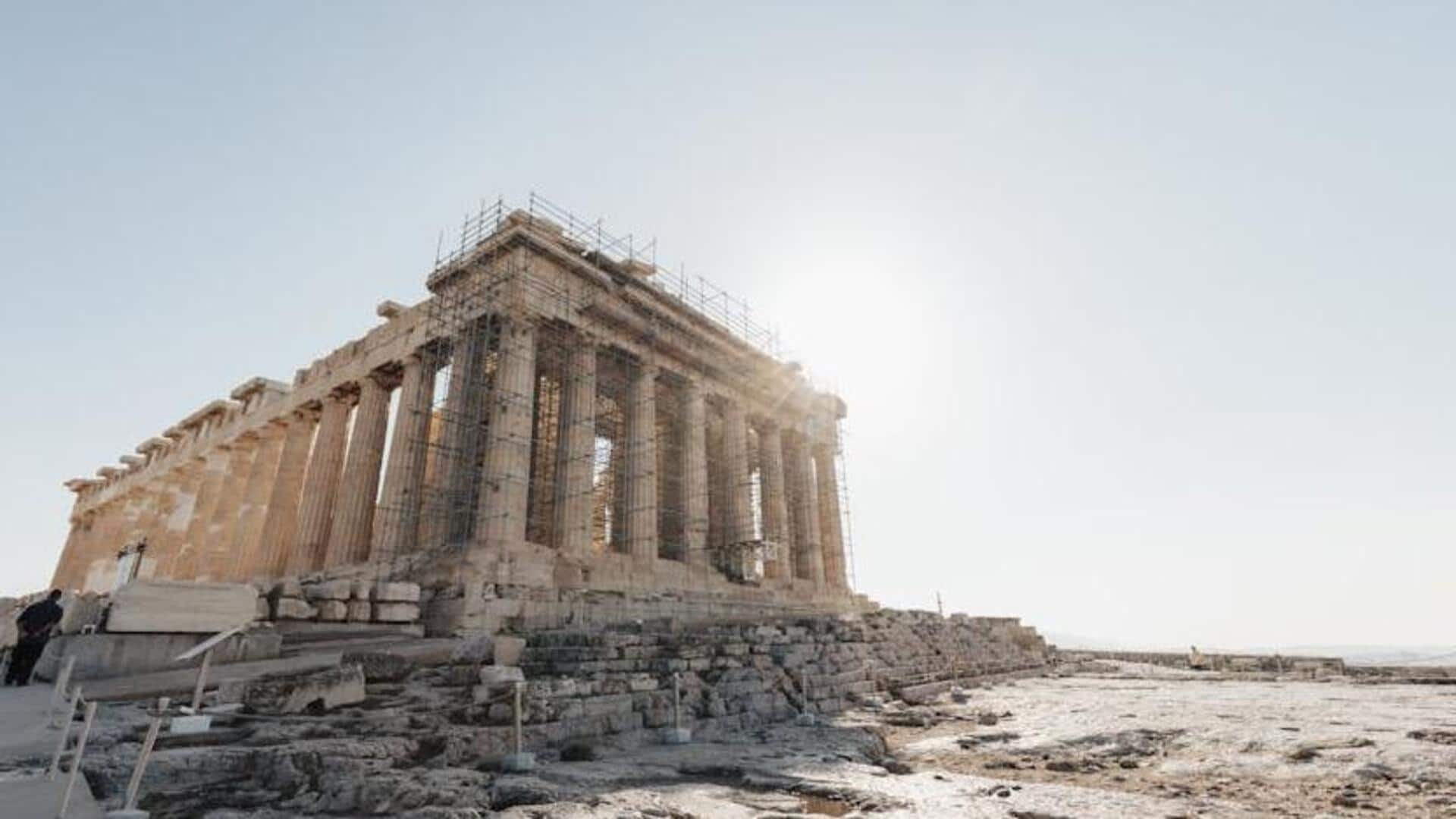
Unveiling Athens: A journey through ancient agoras
What's the story
Athens, Greece, is the epitome of ancient civilization, a place where history meets philosophy in a dance of grandeur.
The city's ancient agoras and landmarks serve as a portal to a time when democracy, philosophy, and art were born.
Our guide is designed to help travelers navigate these historical sites, guaranteeing a journey of knowledge and wonder.
Historical exploration
Step back in time at the Ancient Agora
History buffs, the Ancient Agora of Athens is calling your name!
This was the beating heart of public life in Athens, and the ruins here whisper secrets of democracy's birthplace.
Stroll through the Stoa of Attalos, restored to its ancient splendor, and marvel at the Temple of Hephaestus, one of the best-preserved ancient temples in Greece.
Plan for at least two hours to fully lose yourself in this historical gem.
Philosophical heritage
Philosophical walks through Plato's Academy
A short trip outside the city center will take you to Plato's Academy, a must-visit site for philosophy enthusiasts.
While it's mostly an archaeological park with little left to see, strolling through the area and imagining the deep conversations that occurred here is a thought-provoking experience.
Informational signs aid in comprehending the importance of this location where Plato taught and philosophized over 2000 years ago.
Architectural wonder
Marvel at the Tower of the Winds
Situated in the Roman Agora, The Tower of the Winds is a beautifully preserved octagonal marble clocktower and one of Athens' most intriguing ancient structures.
Constructed by the astronomer Andronicus Cyrrhestes in the first century BC, it functioned as a multifaceted timekeeping and weather prediction instrument.
Its detailed carvings representing the winds from different directions make it a must-see for architecture enthusiasts.
Cultural insight
Engage with history at Kerameikos
Kerameikos, a less-visited gem, offers a unique glimpse into the ancient Greeks' beliefs and customs.
As the primary cemetery of Athens and integral to its defensive walls, Kerameikos provides insights into the ancient world's funerary traditions.
Strolling through this site, visitors will also discover traces of the pottery workshops that gave this area its name, further deepening their understanding of history.